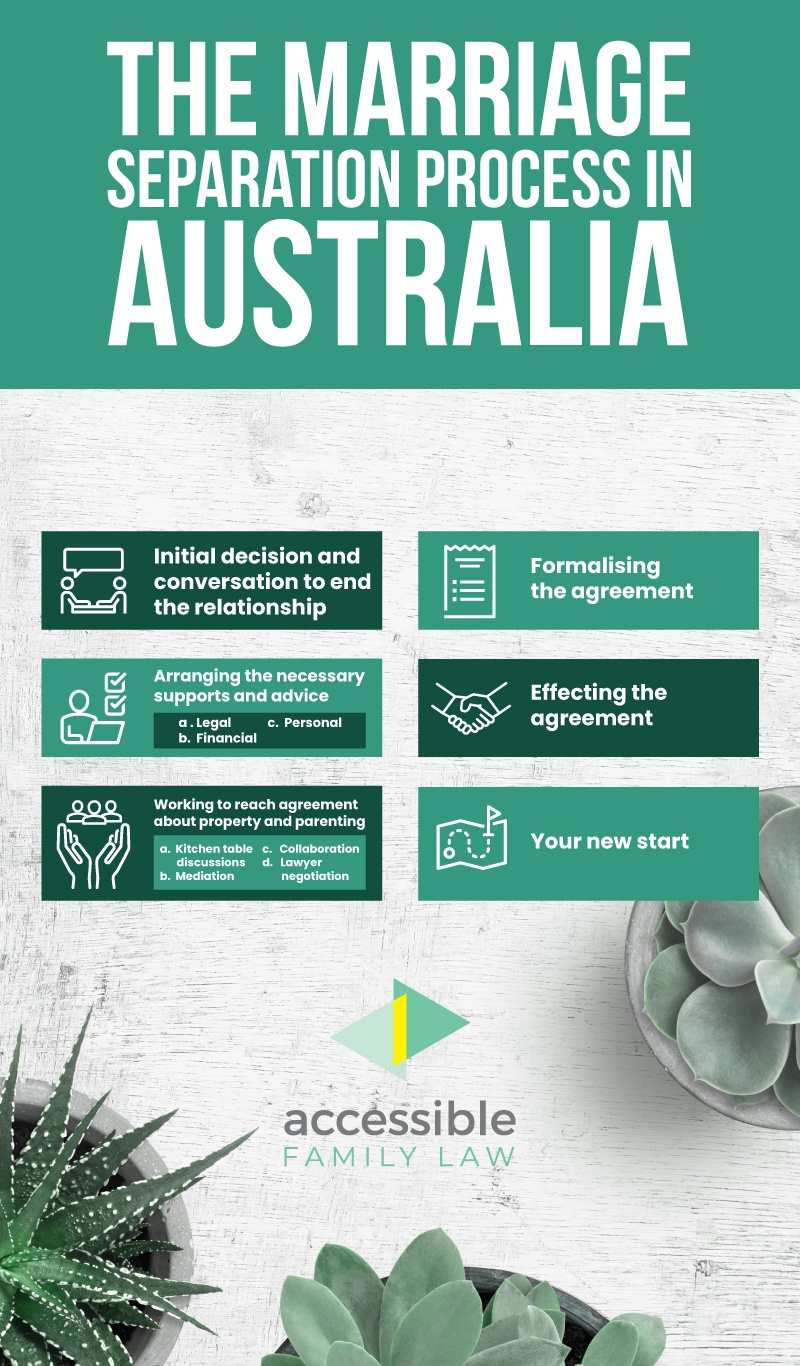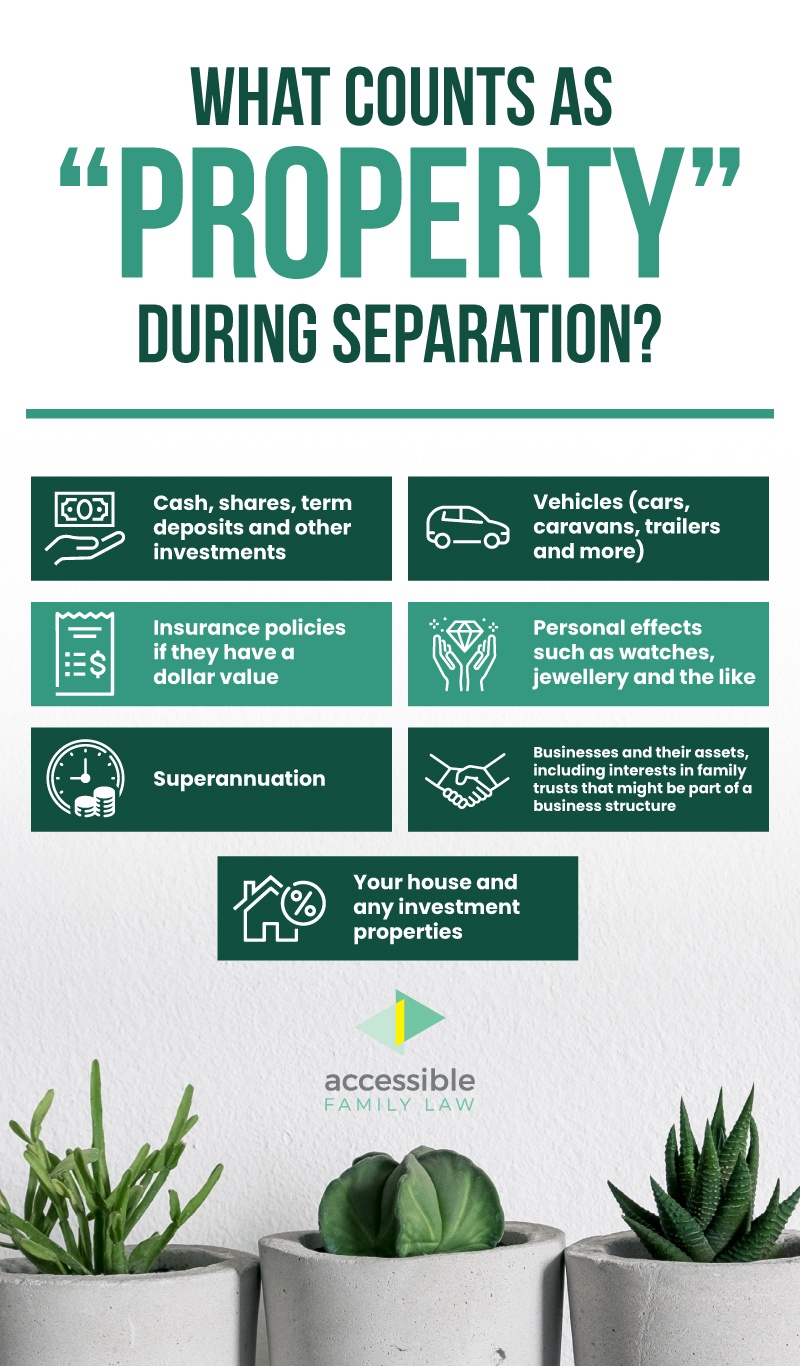What is the marriage separation process?
By far the most common question we get asked in our early discussions is something like “what should I do now?”. Of course you can call us to have a discussion regarding separation legal advice if you prefer, but this guide to separation is designed to show you how the process works, how to protect yourself along the way, and what each step is likely going to involve.
Specifically, we’re going to look at:
There’s a lot to get through, so let’s start your new beginning

Separation is simply the word we use when people stop living together as a couple. There are a few ifs and buts to that statement which we talk about later, but that’s the thrust of it.
So technically you don’t need to be married to become separated, but we’re using the phrase here to describe (without too many extra words!) the steps to bring a serious or long term relationship, whether married or de facto, to an end in a comprehensive but fair way for all involved.
With marriage, that might or might not include divorce, but we’re not talking about that here.
With that in mind, the marriage separation process in Australia involves:
Let’s deal with each of these in turn.
Important Note – if you or your children are a victim of domestic violence or are concerned about safety, then you must get specialist advice to ensure that you and your kids are safe. While this article contains general information it is not written for those in a domestic violence situation. If you fall into this category we can absolutely help you, but it would be best to call and arrange an urgent phone appointment with us.
The separation process begins with a decision, by one person or both, to bring your relationship to an end and stop living together as a couple. Once the decision is made it will usually be followed by a conversation where you communicate your decision to separate. People communicate this in many ways, sometimes in counselling, sometimes in an email or letter, other times couples can sit and discuss this difficult decision face to face.
Being “separated” doesn’t require both people to agree to the separation. As you might expect, it’s common enough that one partner wants to separate and the other does not.
In some cases, you can be “separated” and still be living under the same roof. That can get complicated for all the reasons that you might suspect, so we’ll talk a bit more about that below.
A separation process might start at any time, and does not require lawyers or a Court to make it happen. However, once you’ve made the decision to separate it’s often a good idea to get some initial advice so that you can ensure that all the aspects of your relationship are properly dealt with and make your new start.
Separation is inevitably a stressful process. It can be hard to know what to say to whom, what’s “normal” when going through separation, and where to find help for the issues you might face along the way.
Everyone is going to react differently to different events throughout the separation process. Inevitably though there will be some pressure points. For some it’s the anxiety around what your financial future will look like, for others it’s thinking about how to deal with the dog you bought together. For that reason it can be helpful to think a bit in advance about how you are going to put together your support in the main areas of life, and who you will (and won’t!) turn to as a confidante.
While we won’t pretend that it’s easy, try to ensure that you consider the following along the way:
After a relationship breakdown one of the major points of discussion (or argument) is often going to be about splitting assets, or “property”.
Importantly, you don’t have to obtain a divorce to secure a property settlement – a property settlement can be at any point during the separation process, whether or not you were married or in a defacto relationship.

Property gets a pretty broad meaning when it comes to the separation process, so if you can think of it and it has value then there’s a good chance that it’s property. That’s going to include the following whether they are held in joint names or held in just one person’s name:
Of course, if we deal with your property we also need to consider your debts, that means things like:
Generally, we’d suggest you try and get this done ASAP.
This is for a few reasons:
Strictly speaking you don’t actually need a Court order to divide your property.
BUT, that said, there are many good reasons why you should get a court order to formalise your agreement.
These include:
With your lawyer’s help you can document your property settlement with your former spouse and get orders made by the Court, this is called a consent order and is made under the Family Law Act (Cth) 1975. As part of the process the Court will consider whether, in its view, the agreement reached is “fair”. Once the agreement is approved by the Court you have a binding property settlement. This is the way the vast majority of people formalise their property settlement in Australia.
That said, some people wish to avoid Courts entirely, and so other options exist too.
You might, for example, reach an agreement that might not fit well within what a Court would deem to be fair, or reach an agreement that consists of some unusual aspects that make formalising the agreement by a consent order more difficult. If this is the case parties can enter into a Financial Agreement under the Family Law Act (Cth) 1975. Think of this like a contract – it’s still legally binding on both parties, but it is not scrutinised by the court and the consequences of failing to honour the agreement are different from a consent order.
While there are other informal options, our suggestion is almost always to formalise your settlement agreement with a financial agreement or a consent Court order. This brings your financial relationship with your ex to an end, and means that you can really move on to your new beginning with peace of mind.
Children are, of course, one of the most challenging aspects of the separation process.
While it can be difficult, the best long term decisions are usually made when parents focus on the interests of the child in question. Given the significant impact that your separation is already going to have, we encourage this approach.
The fact that you’re separated doesn’t mean that one parent gets to decide major things and the other doesn’t.
After separation, each parent of a child generally retains joint responsibility for the major decisions of that child’s life – school, health and religion.
However, just because you have joint responsibility it does not automatically mean that you get equal time with your child.
Although lawyers don’t use the word “custody” anymore (but most people do…), many parents believe that the starting point for parenting arrangements is a 50/50 time split.
BUT there are no concrete rules about what arrangements are normal, and parents are free to explore any number of different solutions for parenting time that can meet the needs of their family going forward.
Reaching agreement about parenting arrangements can occur with one (or more) of the following supports):
Once agreement is reached about the parenting arrangements you have a few options available to formalise the agreement.
As before with property one option is to get your lawyer to write up a parenting agreement (called a “parenting plan”) which will detail the arrangements that you and the other parent have agreed to, which is then signed by both of you. A parenting plan is probably the most common way separated families formalise parenting arrangements. A parenting plan is not legally enforceable but it can be relied on in court proceedings if needed as evidence of the agreement that was reached.
If you want a bit more clout with your parenting arrangements (and the ability to seek court remedies if there is a breach) then you can seek to have your agreed parenting arrangements made into consent orders. Your lawyer can help you to do this.
Yes.
While we’ve focused here on the ways in which you can separate amicably with your spouse, unfortunately the separation process isn’t always done by consent.
If you are unable to agree on some or all of the aspects of your separation, then there are a number of ways to go forward.
Before most matters end up in court parties are usually advised to try mediation. This is where an independent facilitator (the mediator) helps you and your former spouse discuss the issues that are holding up finalisation of your agreement and encourages a path towards settlement. Mediations can often lead to resolution of remaining issues, although not always.
If mediation and other negotiation (such as via lawyers) doesn’t result in an agreement of course, you can go to Court. Court is expensive and can take a long time. Beyond that you can’t always predict the outcome. However, sometimes it is the only option to ensure that the outcome is feasible for you. You should be assured, however, than in family law the vast majority of couples are able to negotiate a property settlement and parenting arrangements either directly between themselves, with the assistance of a mediator or with lawyer assisted negotiations.
OK so you’ve formalised your property settlement and parenting arrangements and you’re ready to shake off the past and move forward – great!
Of course, you need to make sure that you comply with your end of the deal. Things can go south very quickly if people fail to comply with property or parenting orders. If your ex partner fails to hold up their end of the deal then you should give your lawyer a call immediately.
But assuming everything is going well, it’s time to do some serious thinking about what your next phase is going to look like (which you’ve probably been doing anyway).
Remember – you’ve got a life ahead of you, and it’s time to live it.
Call us: +61 3 7002 6222
Email us: click here
Visit us: Level 5, 11 Eastern Road, South Melbourne, Victoria
Operating Hours: Mon-Fri 9am-5pm
Accessible Family Law acknowledges the First Nations People as the traditional custodians of this land. We live, learn and work on the lands of the Bunurong people of the Kulin Nation. ![]()